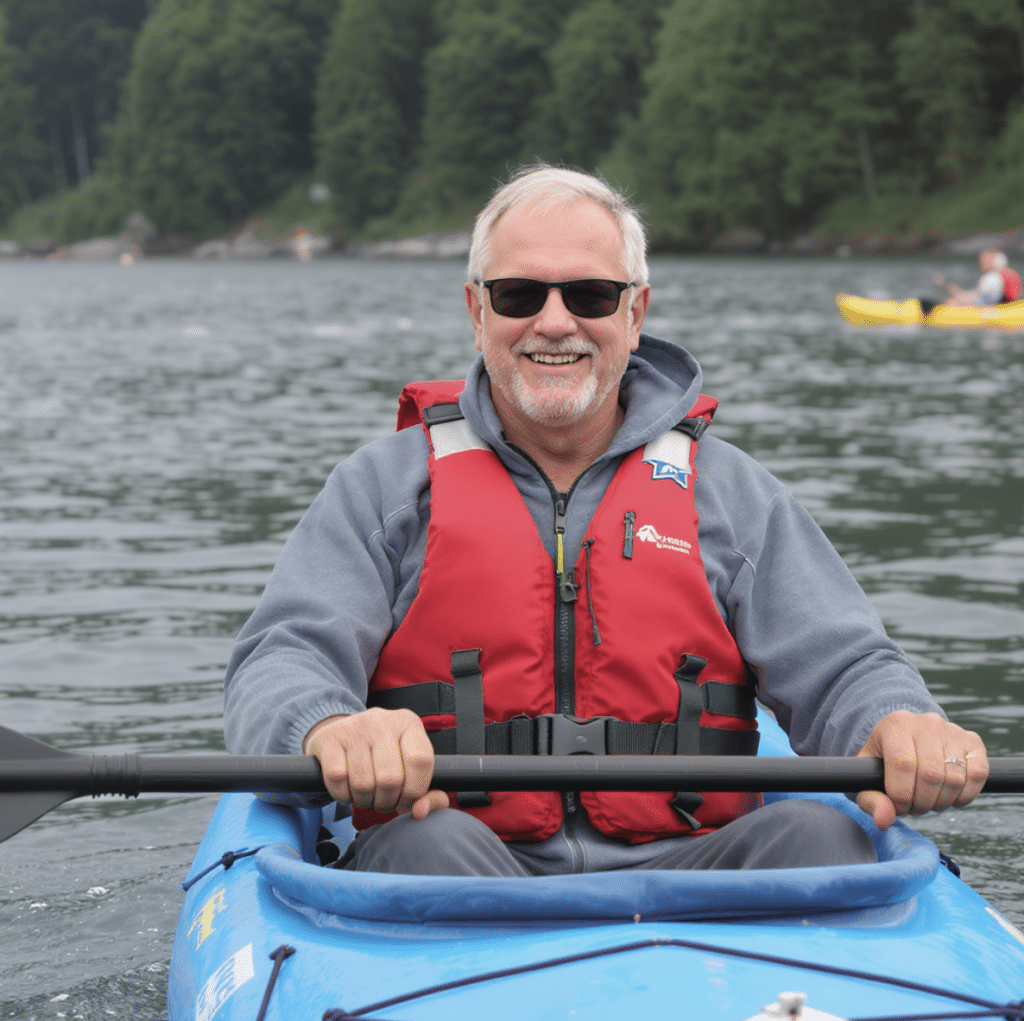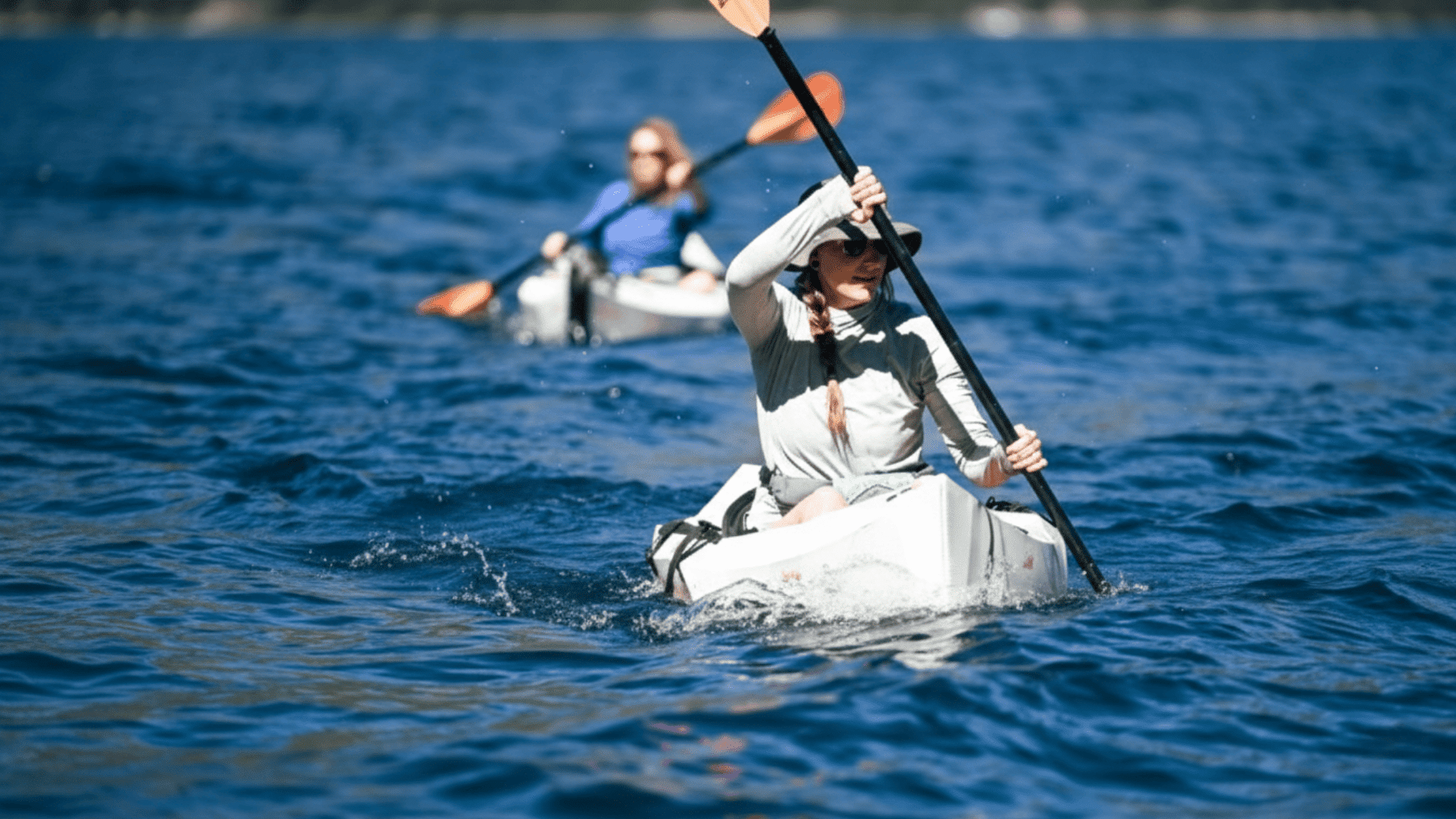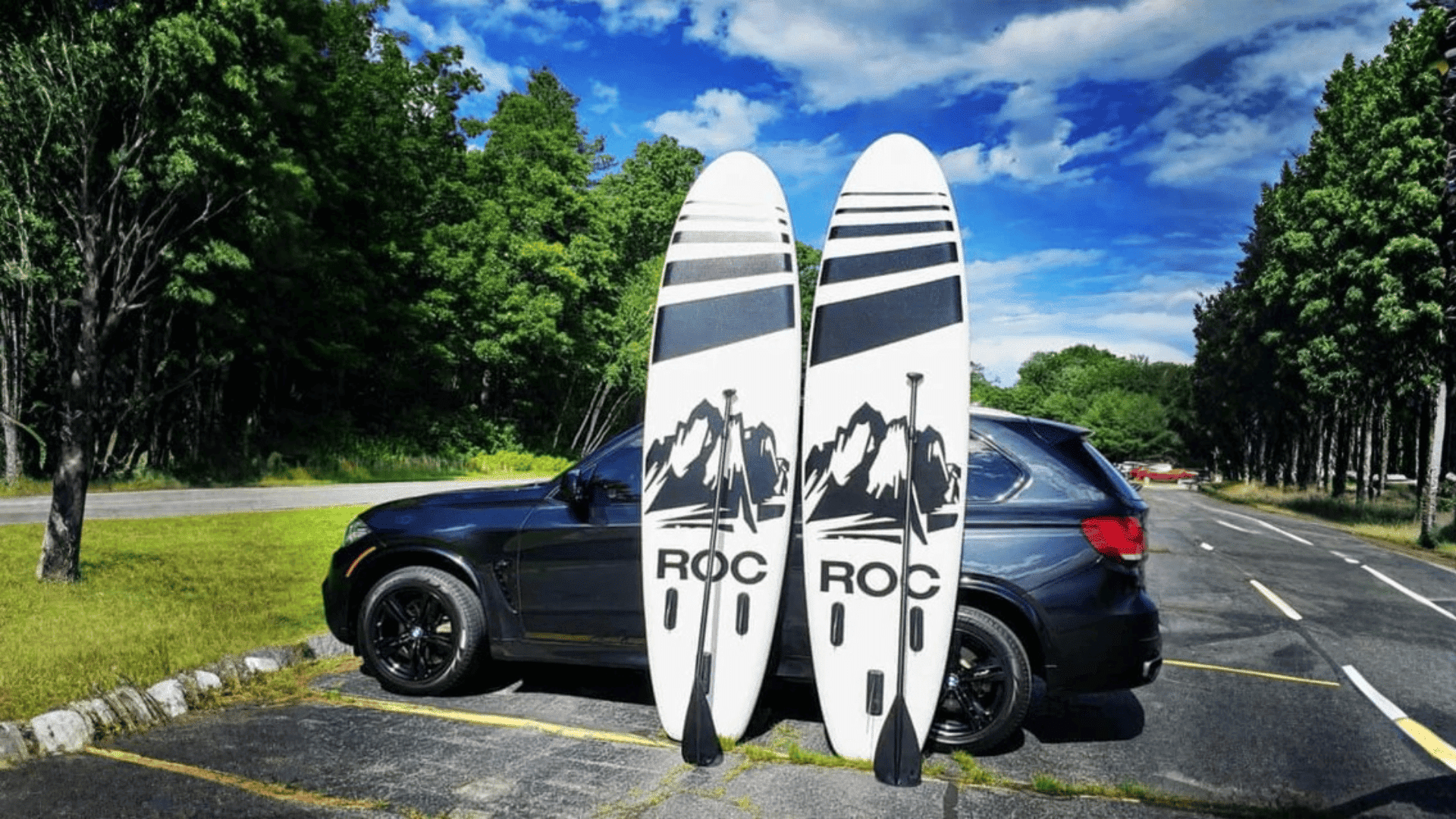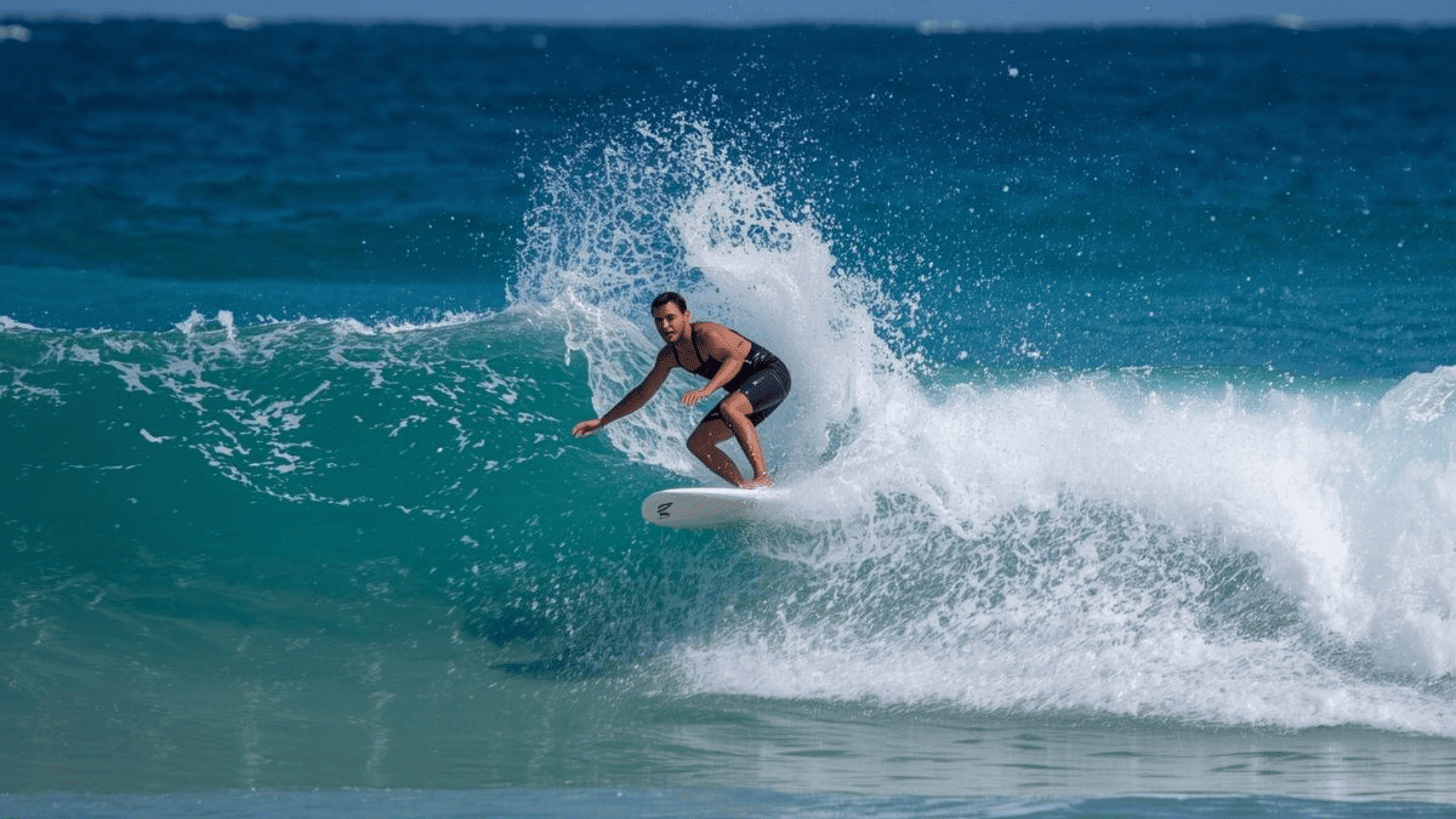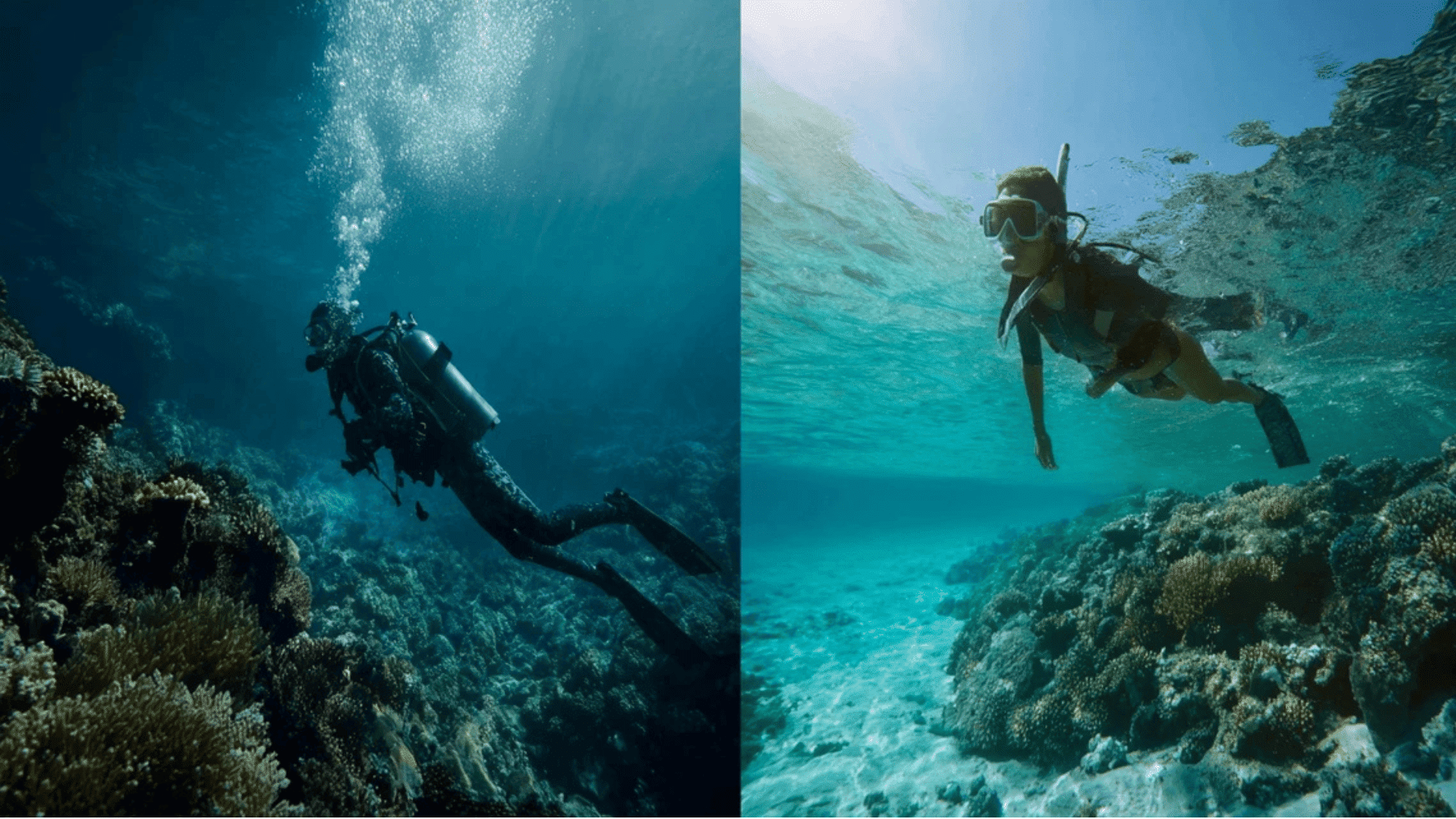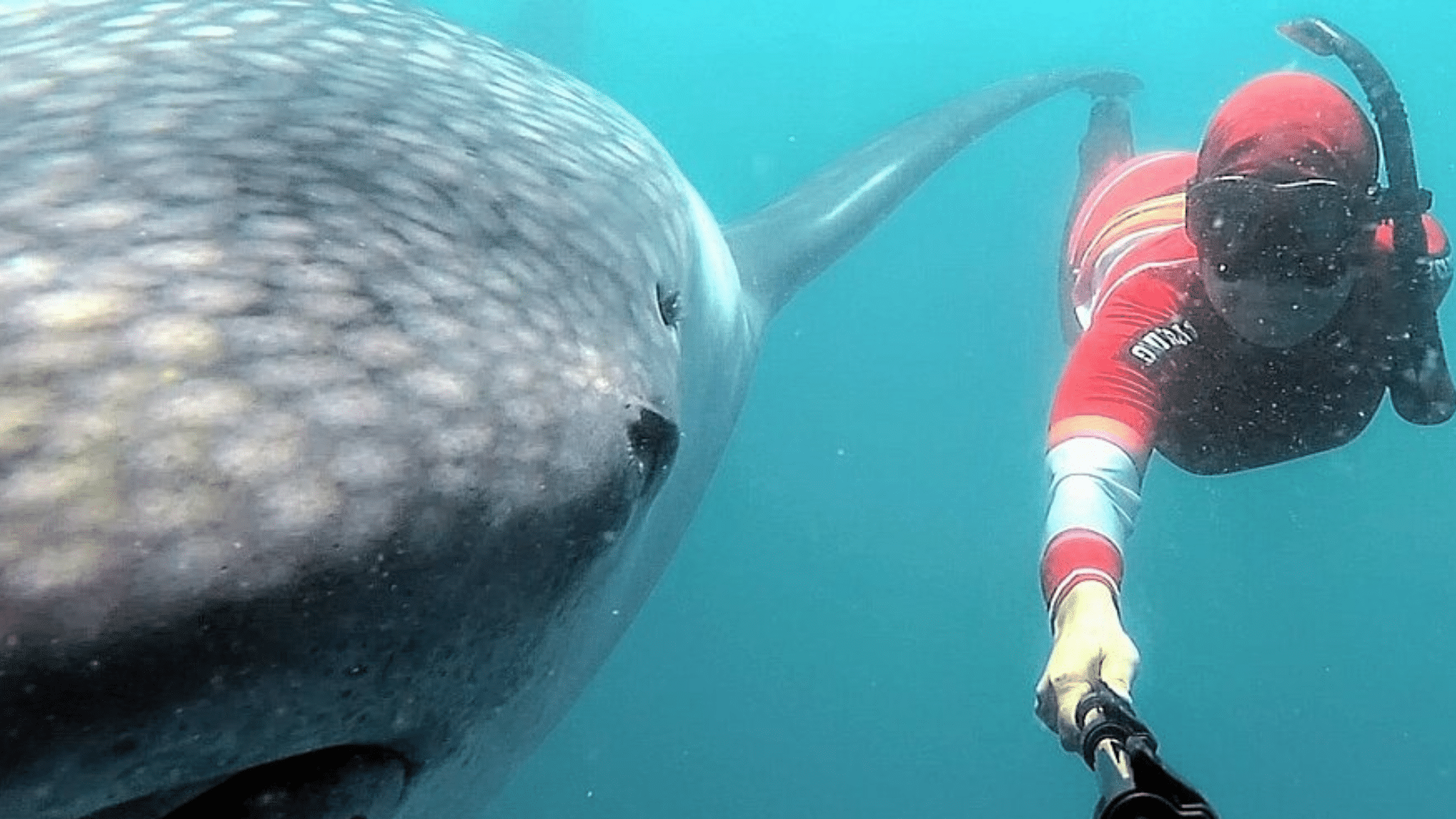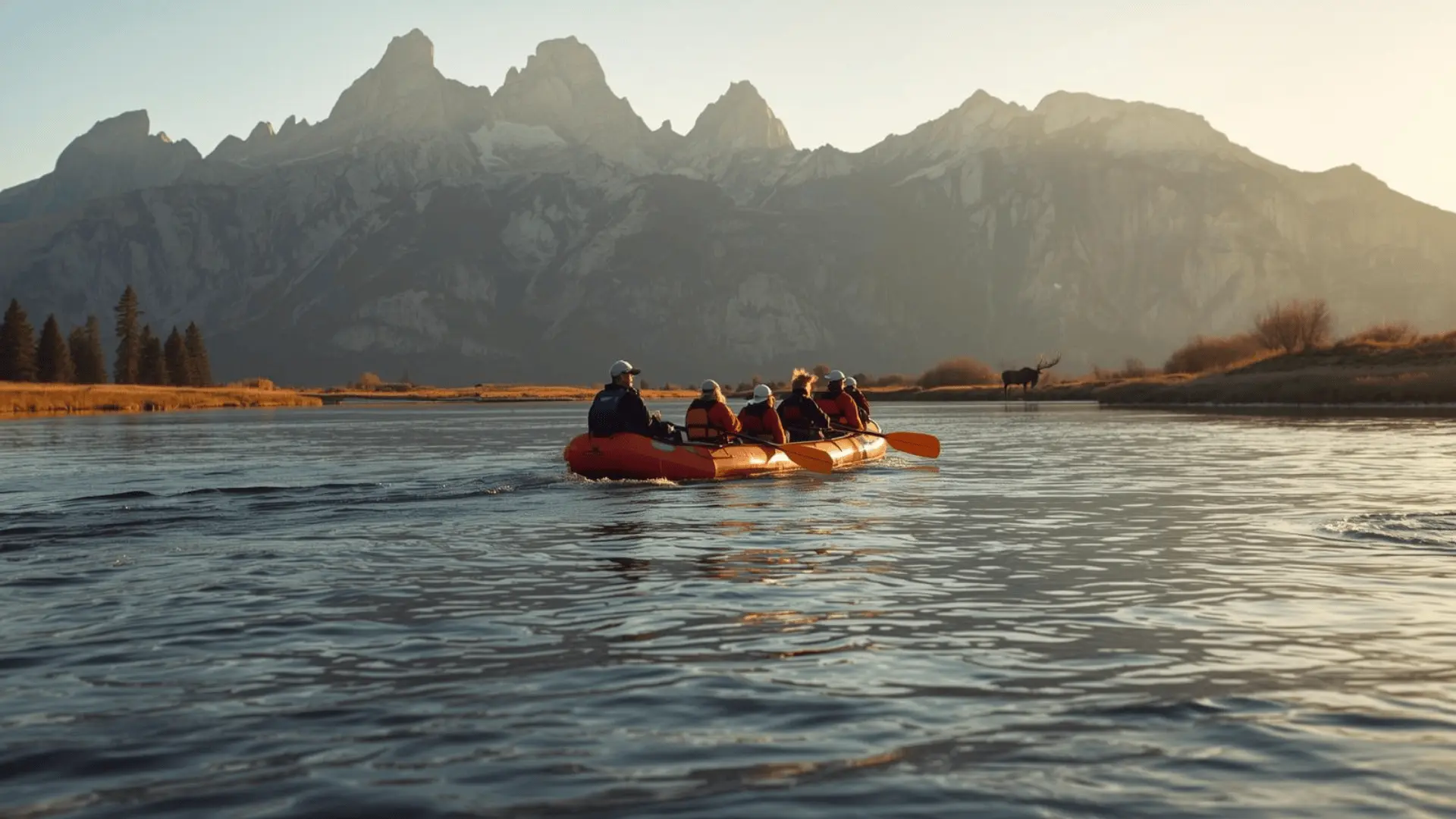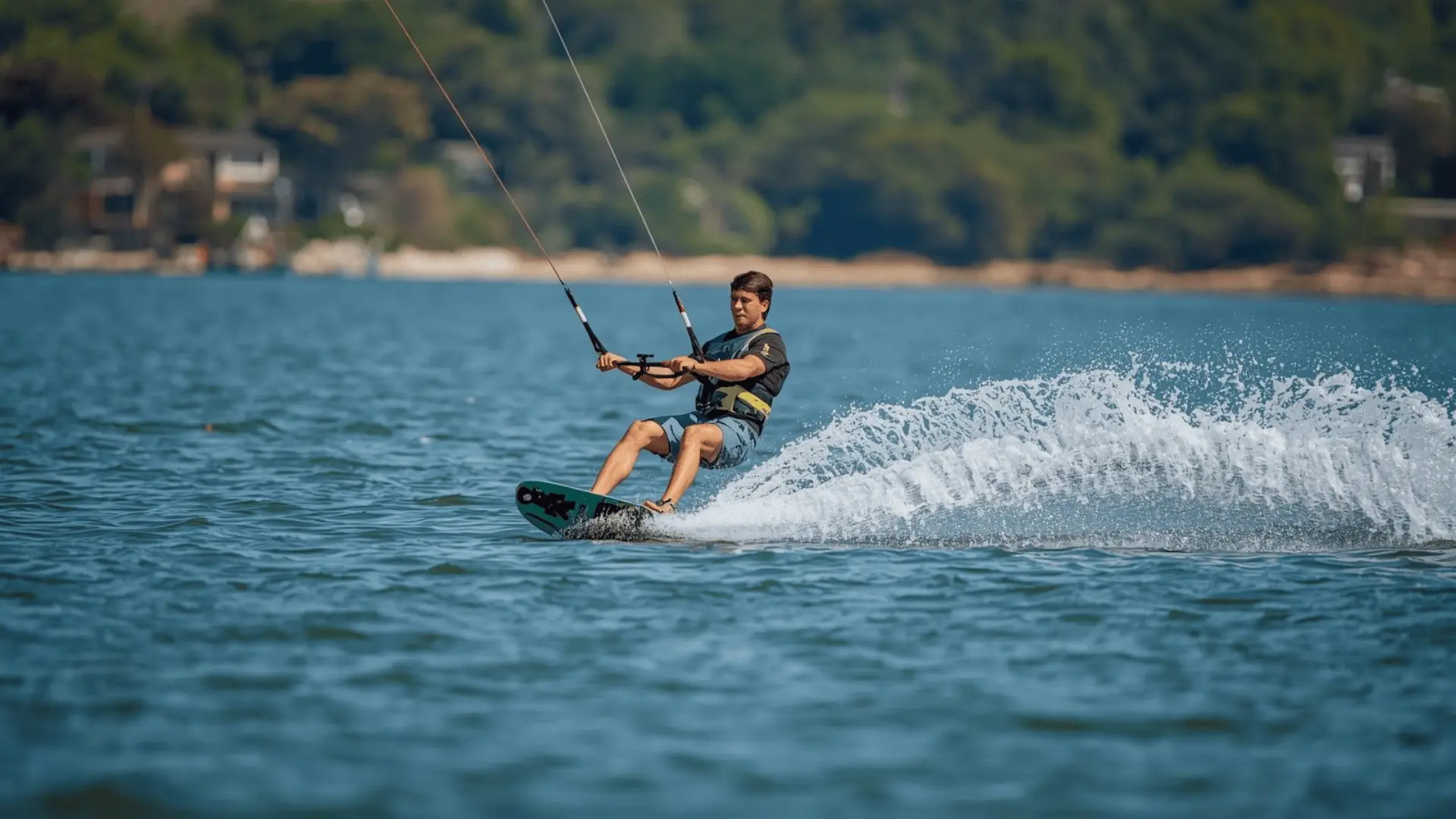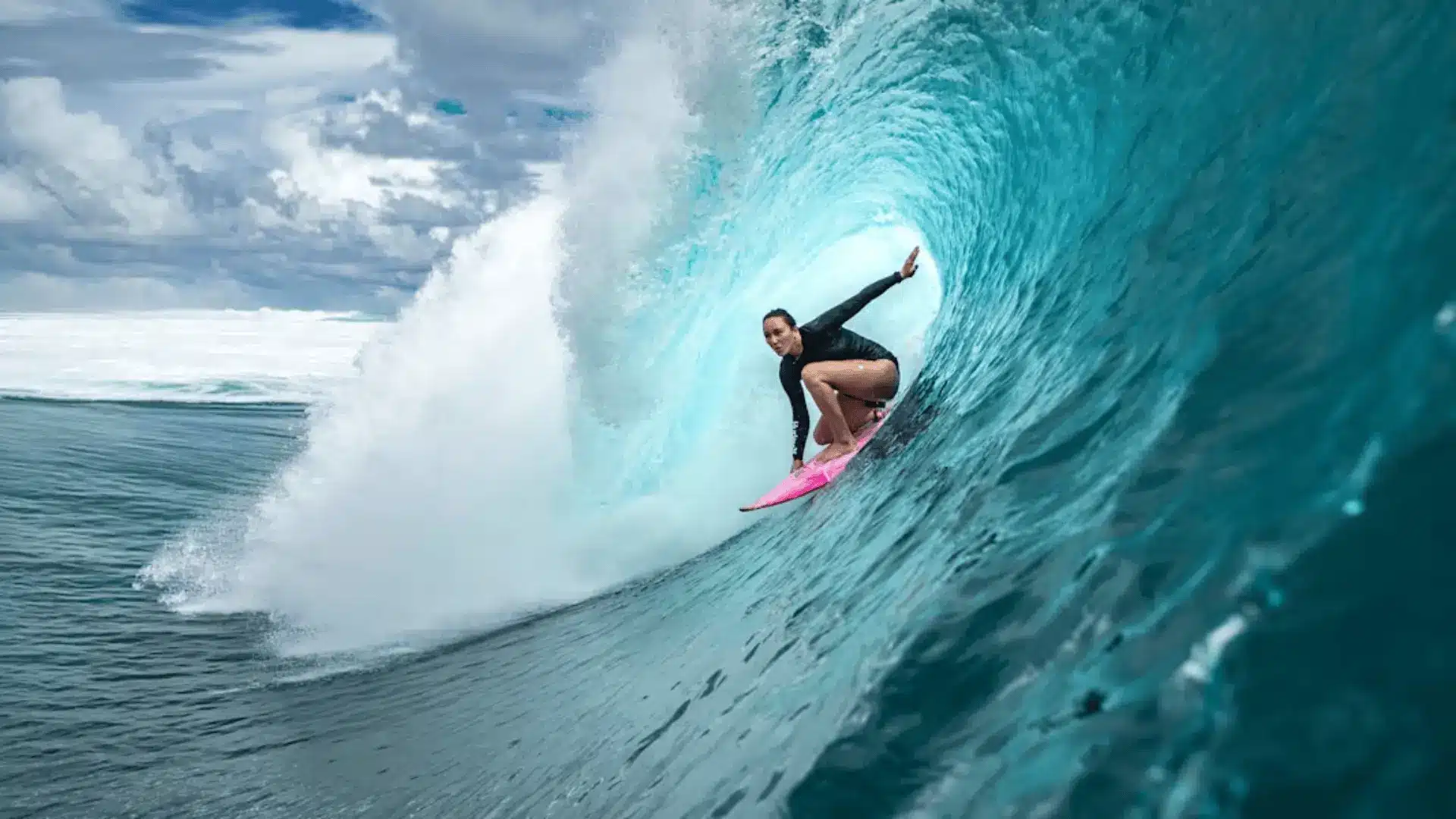The morning mist lifts off a glassy lake as your paddle cuts through the still water.
Loons call in the distance while pine trees tower overhead, their reflection creating a perfect mirror on the surface.
Then you turn a corner and suddenly you’re paddling past a historic lighthouse with seals watching you curiously from nearby rocks.
Maine offers something special for every type of kayaker. You can explore pristine mountain lakes where moose come to drink at dawn, or navigate protected coastal bays dotted with lobster buoys and charming fishing villages.
This guide will help you find the best kayaking experiences Maine has to offer.
Top Kayaking Tour Operators in Maine
These established companies specialize in Maine’s legendary rocky coastline and protected bays. They offer everything from beginner harbor tours to challenging multi-day island expeditions.
1. Maine Kayak
Maine Kayak is one of the state’s premier operators with launch points at Boothbay Harbor, Pemaquid Harbor, and Muscongus Bay.
They offer trips ranging from 2-hour paddles to multi-day expeditions with professional guides. Their high-quality equipment and safety-first approach work perfectly for all skill levels.
2. Coastal Kayaking Tours
Coastal Kayaking Tours operates in Casco Bay near Portland with unique island-hopping experiences and optional camping.
Their expert guides know every hidden cove and secluded beach in the area. They’re ideal for paddlers wanting to check out Maine’s islands with lunch breaks on remote shores.
3. Southern Maine Kayak Excursions
Southern Maine Kayak Excursions serves the popular Kennebunkport area with rentals and guided tours along the southern coast.
They’re perfect for visitors in this vacation region who want convenient access to quality kayaking. Their local knowledge helps guests find the best wildlife viewing and photography spots.
4. Acadia Kayak and E-Bike
Acadia Kayak and E-Bike combines water adventures with other outdoor activities around Mount Desert Island and Bar Harbor.
Their location near Acadia National Park makes them ideal for travelers exploring both land and water. They offer unique multi-activity packages showcasing Maine’s best outdoor recreation.
Best Inland Kayaking Spots
Maine’s inland waters offer peaceful paddling through some of the most pristine wilderness in the Northeast.
1. Penobscot River and Bay
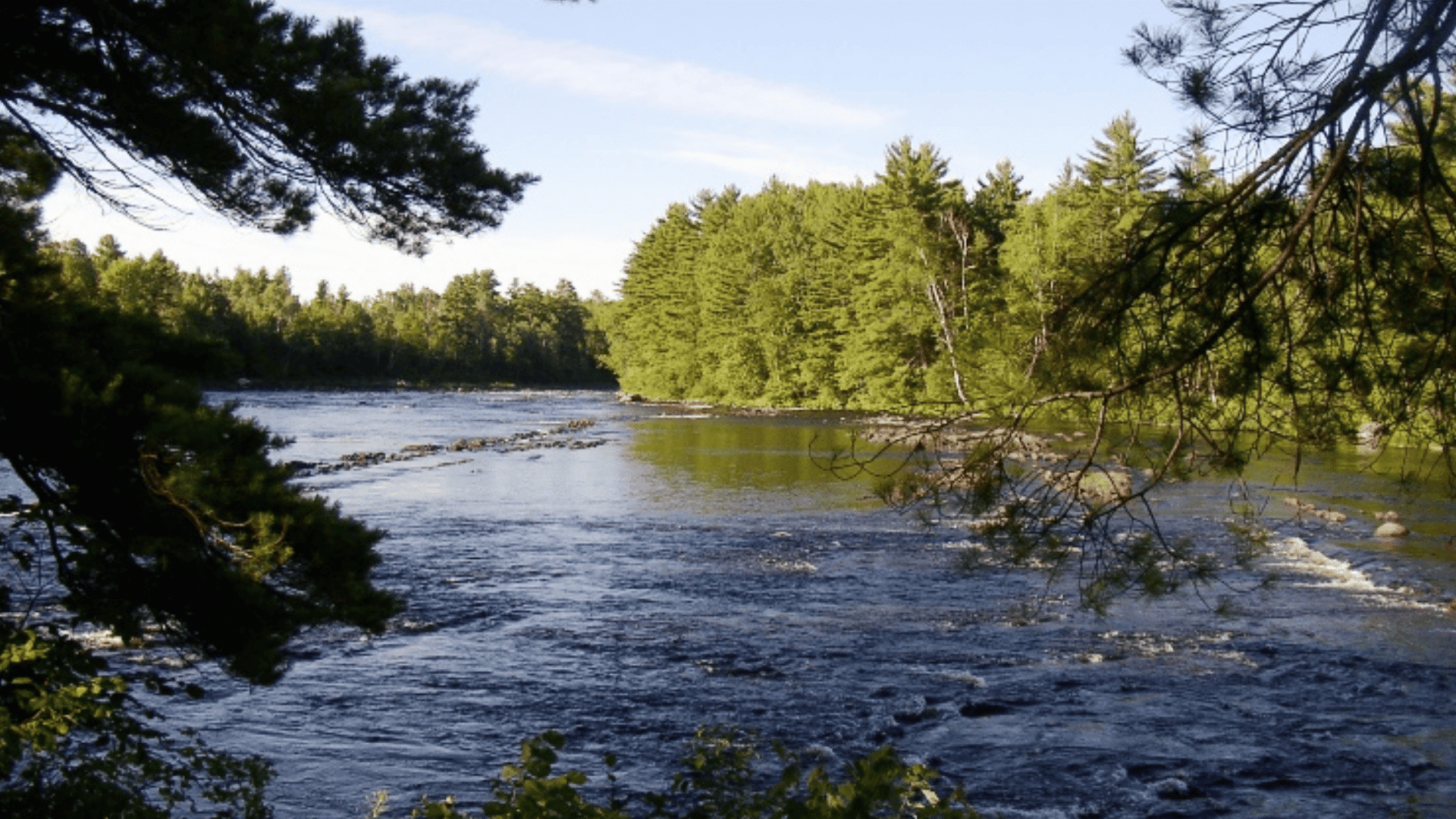
The river’s protected upper reaches are perfect for beginners, while the bay offers more challenging conditions and incredible wildlife viewing. You might see seals, porpoises, and osprey fishing in these nutrient-rich waters.
2. Moosehead Lake and Northern Lakes
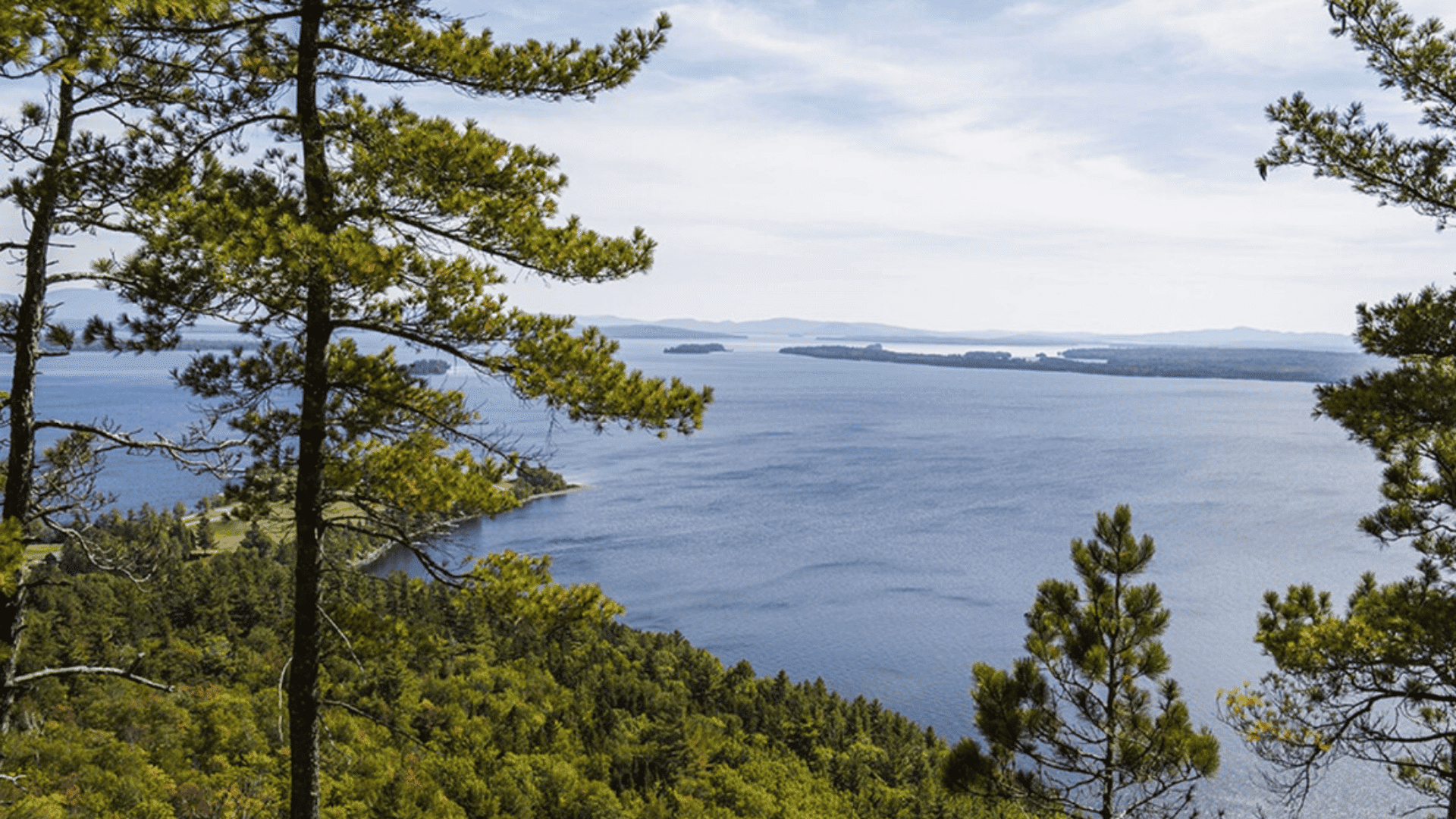
These massive wilderness lakes offer backcountry camping experiences where you can paddle for days without seeing another soul.
The fishing is excellent, the scenery is breathtaking, and you have a real chance of spotting moose, especially during early morning and evening paddles.
3. Seboeis and Richardson Lakes
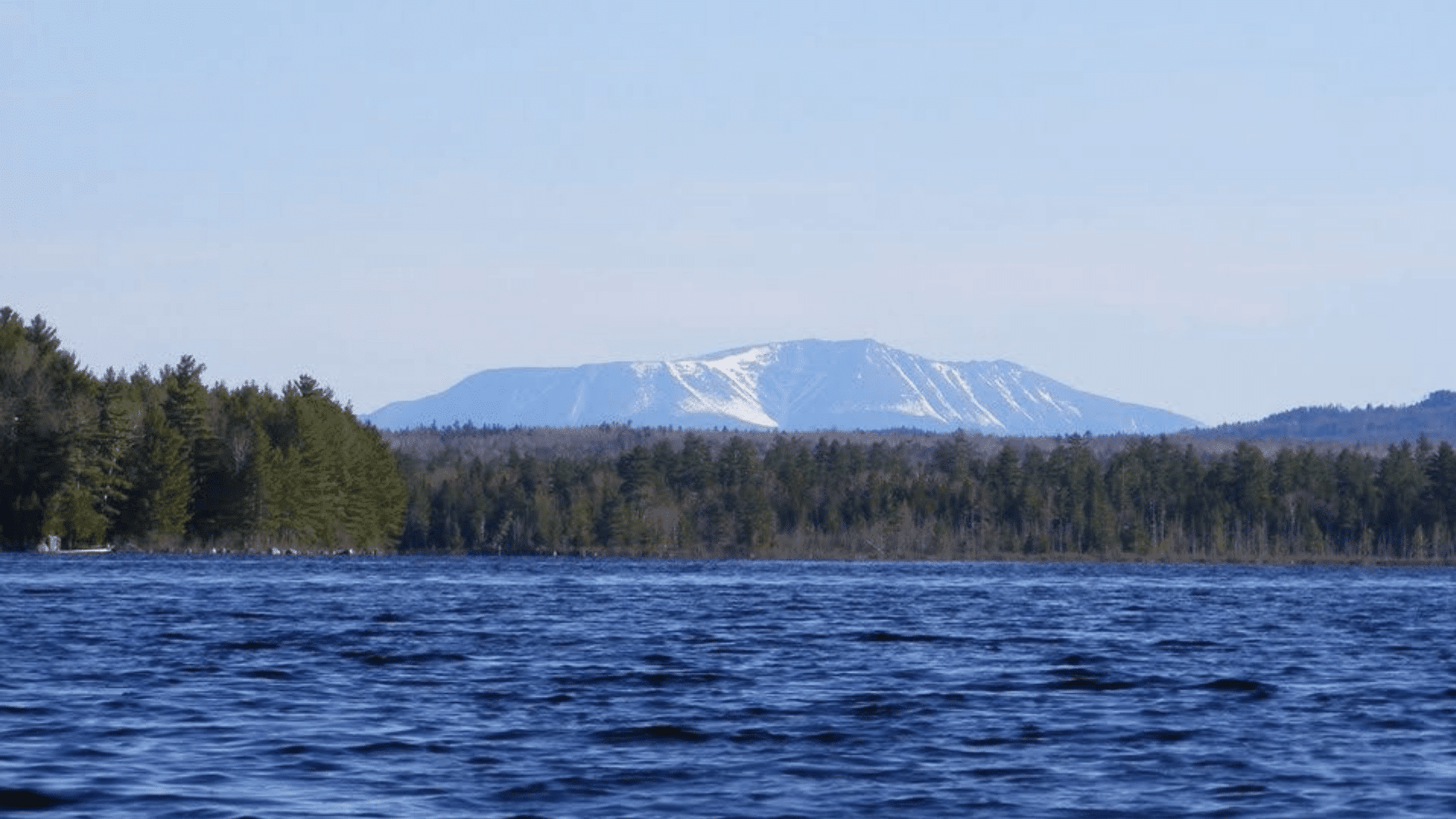
These quiet lakes are perfect for photographers and nature lovers who want to experience Maine’s wilderness without crowds.
The water is incredibly clear, and the surrounding forests are home to deer, black bears, and countless bird species.
Best Coastal Kayaking Spots
Maine’s legendary rocky coast offers some of America’s most spectacular sea kayaking, with protected bays, historic lighthouses, and abundant marine life.
4. Boothbay Harbor and Pemaquid Peninsula
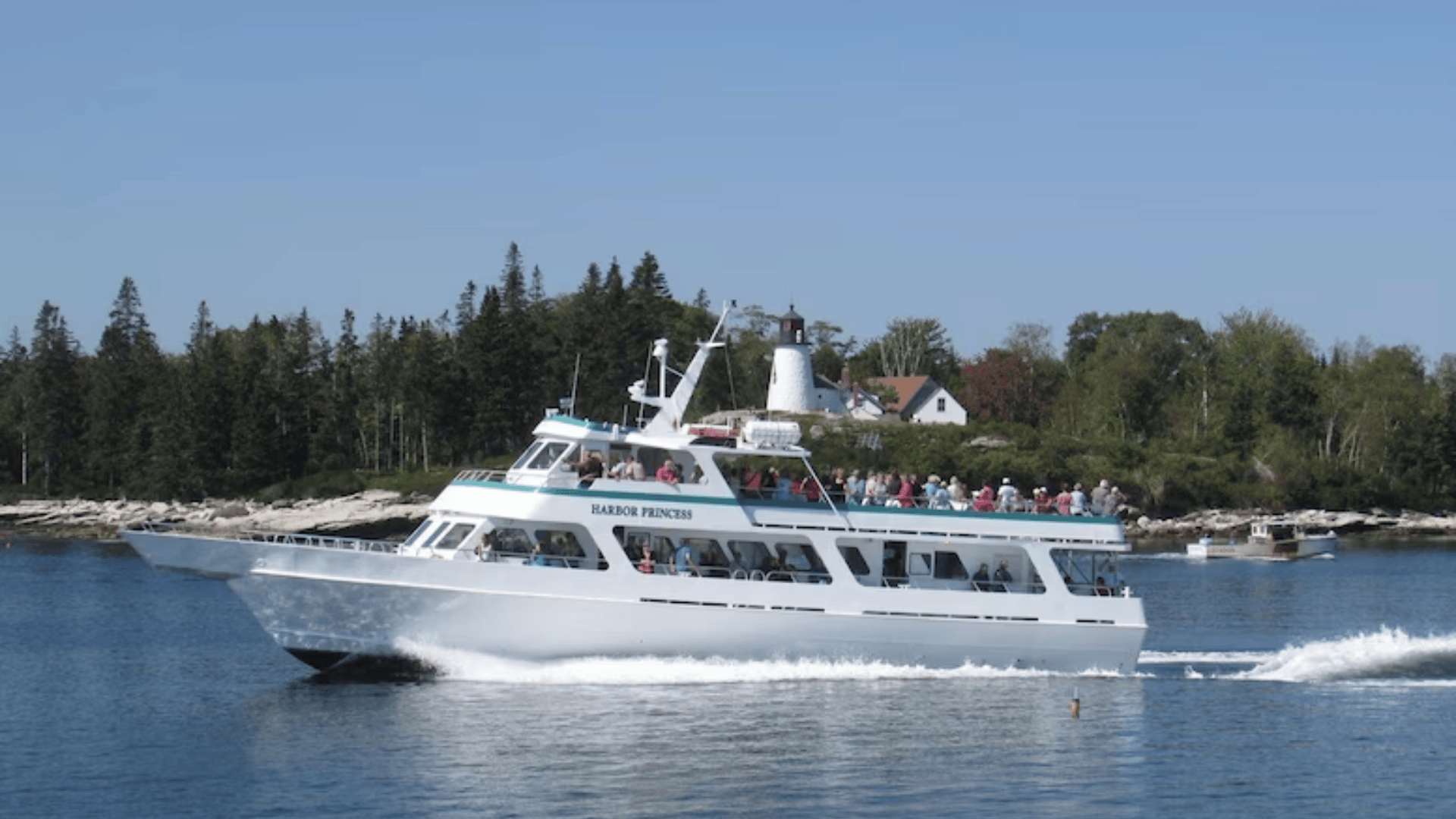
The area’s numerous islands provide excellent camping opportunities, and you’ll paddle past historic lighthouses that have guided mariners for centuries.
Wildlife is abundant here – seals are common, and you might spot porpoises or even whales during the right season.
5. Damariscotta River
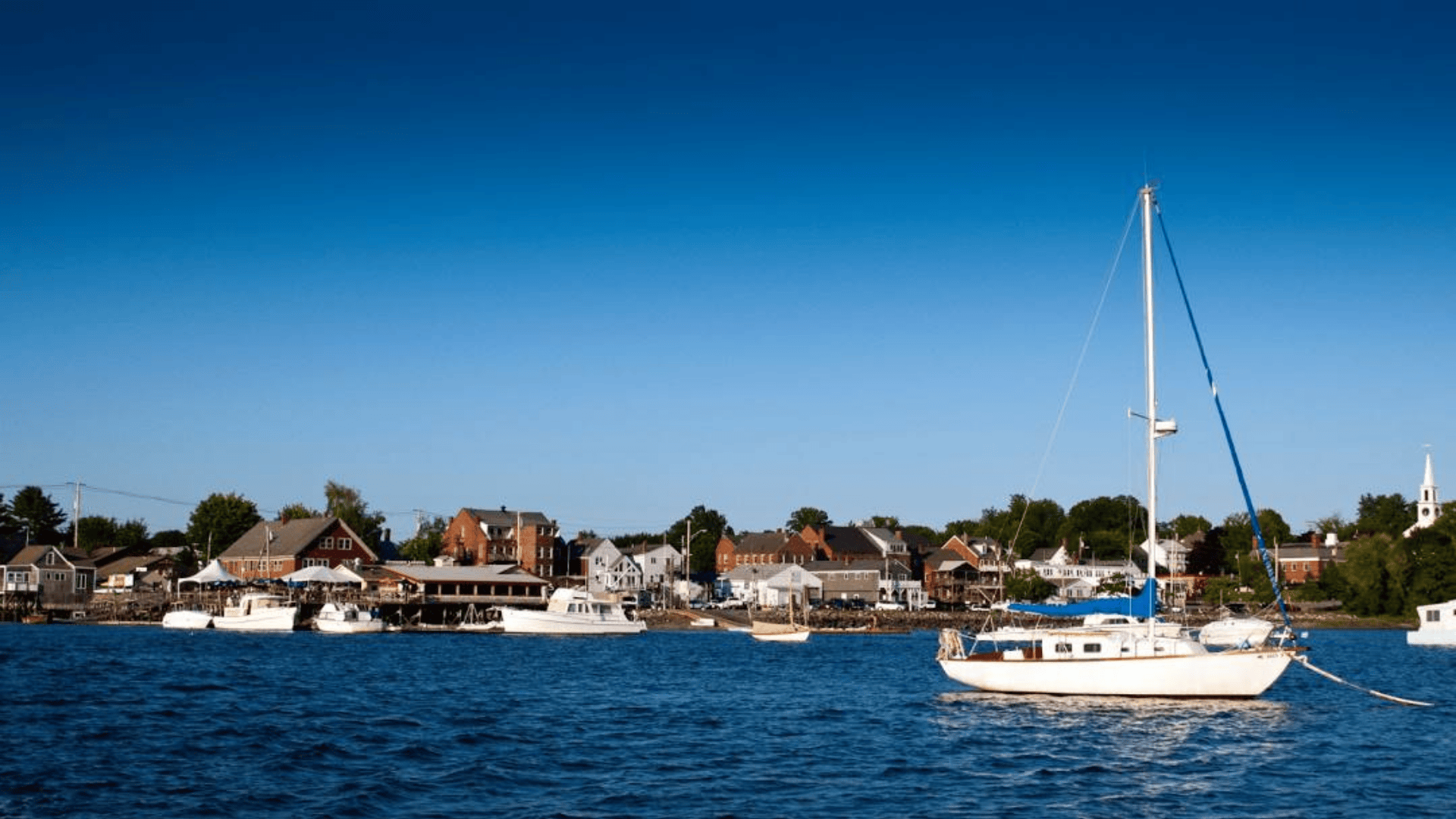
Local tours often include stops at oyster farms where you can taste fresh oysters right from the water.
The river’s calm waters and rich marine ecosystem make it perfect for beginners and wildlife enthusiasts.
6. Cape Porpoise Harbor and Scarborough Marsh
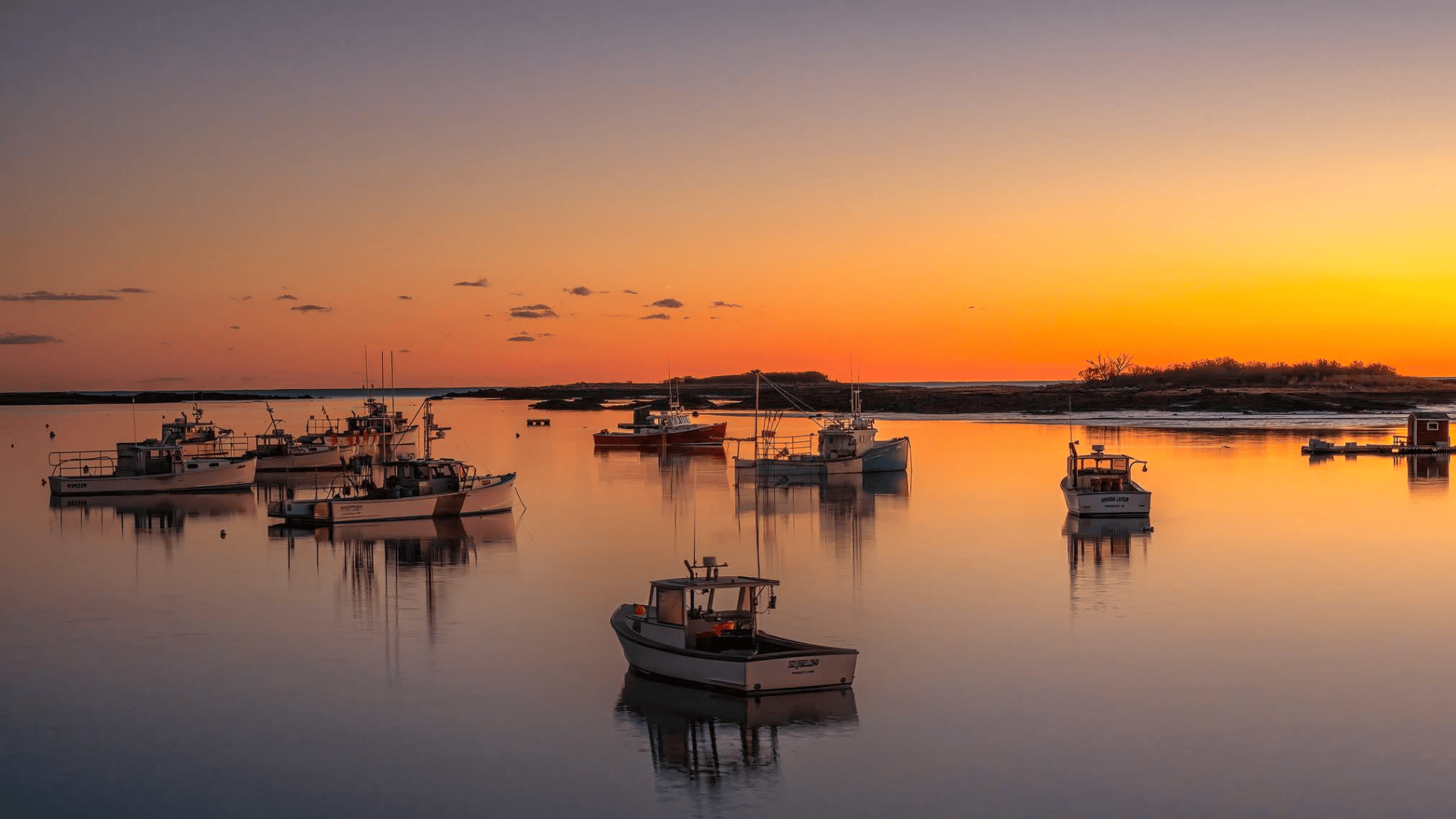
The tidal marshes here are incredible for birdwatching, especially during migration seasons when thousands of birds stop to rest and feed.
Sunset paddles through these marshes are particularly magical, with golden light reflecting off the water and marsh grasses.
7. Muscongus Bay and Islands
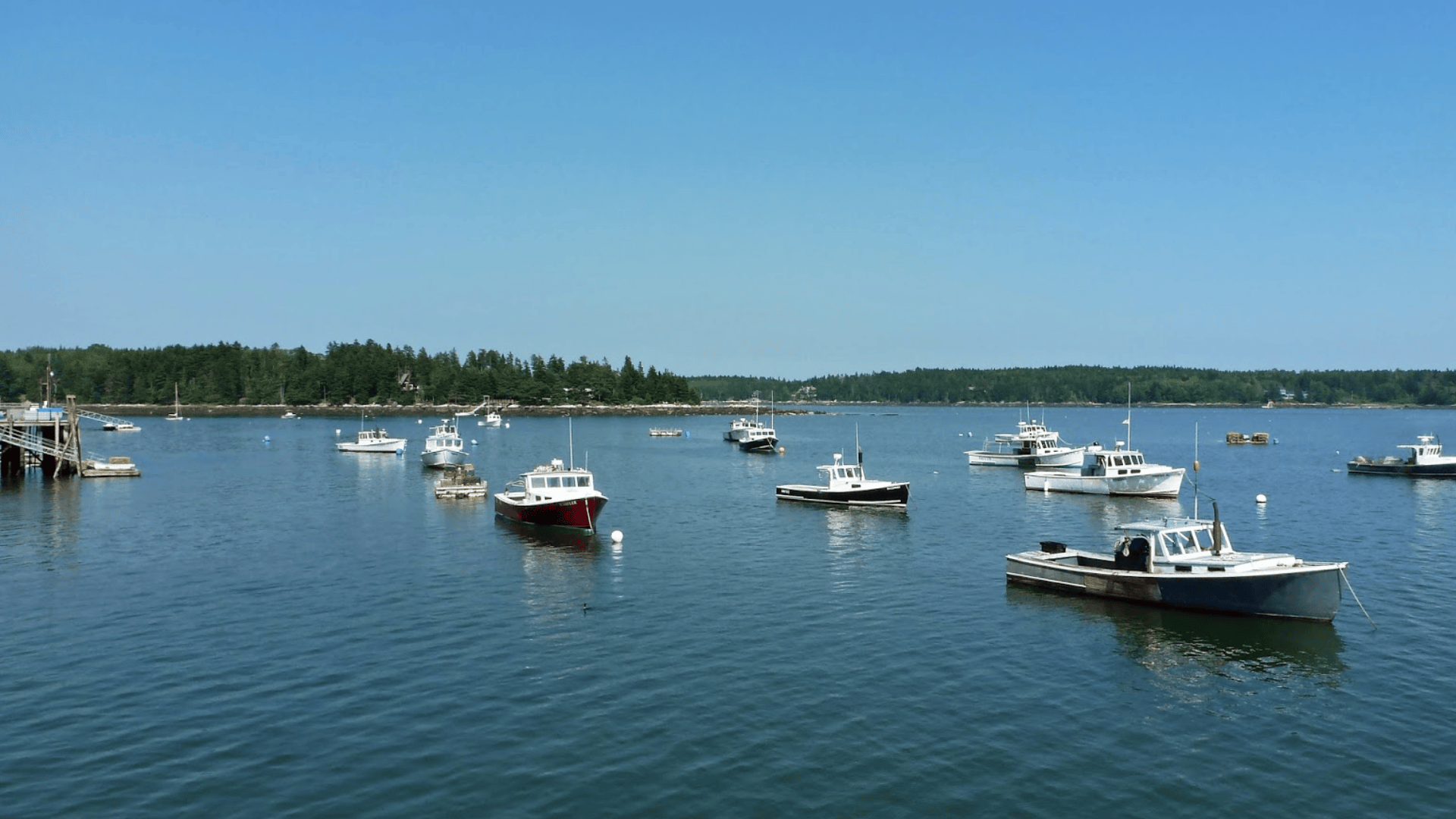
You can paddle from island to island, setting up camp on remote beaches and enjoying traditional Maine lobster bakes under the stars.
The bay’s protected waters and numerous islands make it perfect for both beginners and experienced sea kayakers.
How to Prepare for Kayaking in Maine
Smart preparation ensures your Maine kayaking adventure is safe, comfortable, and unforgettable. Maine’s waters can be challenging, so proper planning is essential.
Step 1: Master Your Clothing System
Layer your clothing since Maine weather changes quickly, especially on the coast. Start with moisture-wicking base layers and add insulating layers like fleece.
Top with a waterproof outer shell to stay dry. Even in summer, Maine waters stay cold, so hypothermia is a real concern if you end up in the water.
Step 2: Secure Proper Safety Equipment
Personal flotation devices (PFDs) are required by law and must be worn at all times while paddling. Most tour operators provide high-quality PFDs, but check that yours fits properly and is Coast Guard-approved. Bring a whistle attached to your PFD for emergency signaling.
Step 3: Prepare Navigation Tools
Navigation tools become crucial for longer trips or independent paddling. Pack a waterproof map, compass, and GPS device as lifesavers when fog rolls in.
Maine’s coast is famous for sudden fog banks that reduce visibility to just a few feet.
Step 4: Check Weather and Tides
Weather and tide awareness are critical for coastal paddling since Maine has significant tides up to 12 feet in some areas.
These tides can completely change your paddling route’s character. Always check tide charts and weather forecasts before heading out.
Step 5: Respect Wildlife and Environment
Keep appropriate distances from all marine mammals – at least 150 feet from seals and 500 feet from whales. Nesting birds on islands should not be disturbed during breeding season (April through August).
Follow Leave No Trace principles by packing out all trash and camping only in designated areas.
Planning Your Kayaking Itinerary
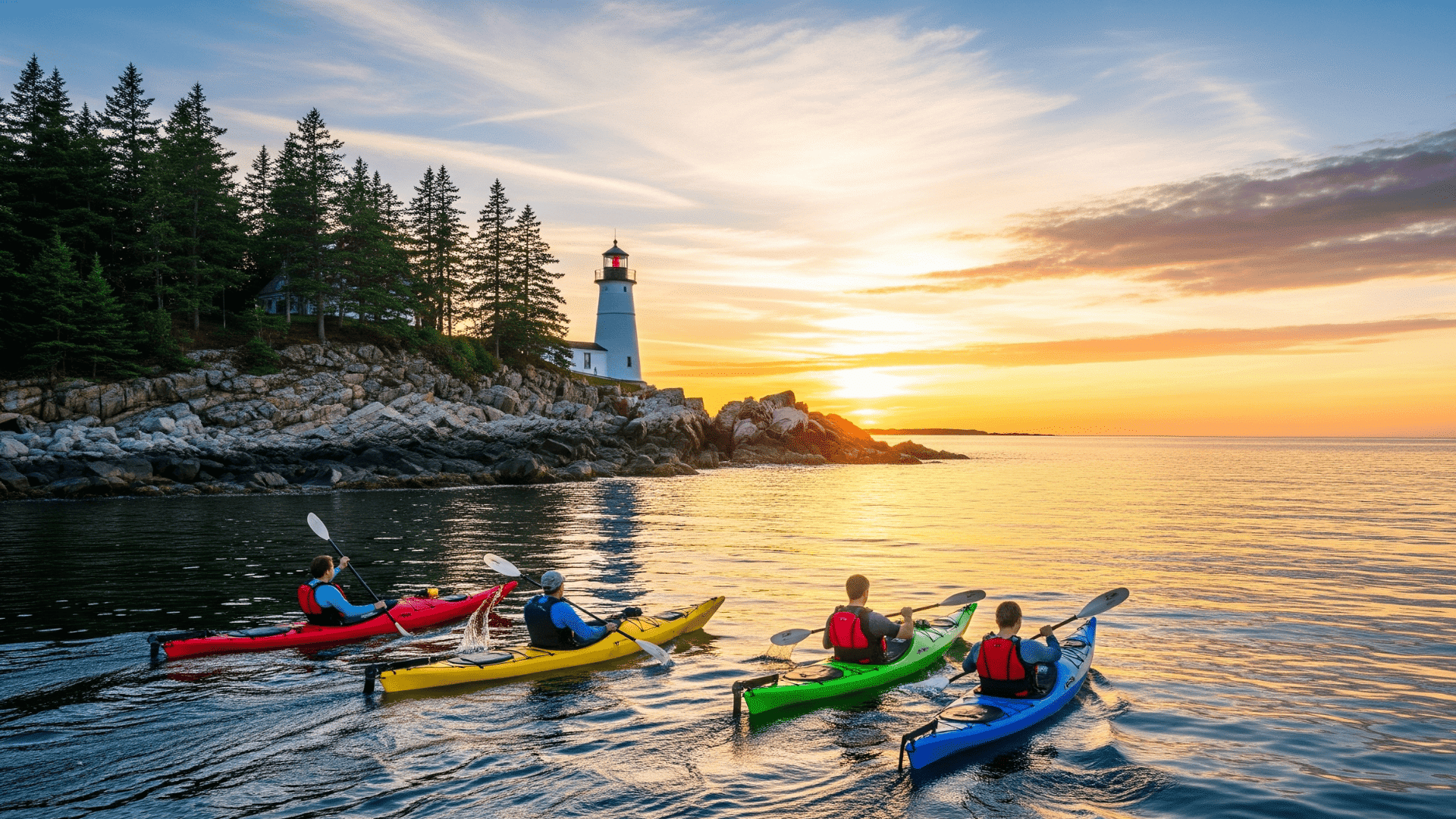
Your Maine kayaking adventure should match your interests, skills, and the time you have available.
Choosing Your Base and Season
Coastal hubs like Bar Harbor, Boothbay Harbor, or Kennebunkport work best if you want to focus on sea kayaking and lighthouse viewing.
These towns offer excellent accommodations, restaurants, and easy access to multiple paddling locations.
Inland bases like Greenville or Rangeley are perfect if you prefer lake paddling, wildlife watching, and wilderness camping. These areas offer a more remote, backcountry experience with fewer crowds.
Seasonal timing affects your experience significantly. Late spring through early fall (May through October) offers the best weather and water conditions.
Sample Itineraries
These detailed itineraries show how to combine Maine’s best coastal and inland kayaking experiences for unforgettable adventures.
3-Day Maine Coast Island Hopping
- Day 1: Start in Boothbay Harbor with a guided tour to get oriented and explore downtown
- Day 2: Paddle to a nearby island for camping and explore tide pools during low tide
- Day 3: Visit Pemaquid Lighthouse by kayak and enjoy a traditional Maine lobster dinner
5-Day Mixed Inland and Coastal Adventure
- Day 1: Begin on Moosehead Lake for wilderness paddling and wildlife viewing
- Day 2: Continue Moosehead Lake exploration with a backcountry camping experience
- Day 3: Travel to the coast for sea kayaking around Muscongus Bay with island camping
- Day 4: Full day of multi-island sea kayaking with traditional lobster bake
- Day 5: Relaxing day trip from Bar Harbor, roaming the Frenchman Bay near Acadia National Park
Costs and Budgeting
Maine kayaking experiences vary widely in cost depending on duration, location, and what’s included.
| Trip Type | Cost Per Person | What’s Included | Duration |
|---|---|---|---|
| Half-day tours | $65-120 | Guide, equipment, basic instruction | 3-4 hours |
| Full-day trips | $130-220 | Guide, equipment, lunch, instruction | 6-8 hours |
| Multi-day tours | $200-400/day | Meals, camping gear, guide, activities | 2-5 days |
| Equipment rental | $40-80/day | Kayak, paddle, PFD, basic safety gear | Daily |
Additional Costs to Consider
- Accommodation in coastal towns (can be expensive in summer)
- Meals not included in tours
- Transportation to Maine and between regions
- Camping fees for state parks and islands
- Guide tips (10-15% is standard for good service)
Experience the Magic of Maine by Kayak
Maine offers kayaking adventures that will stay with you long after you’ve returned home.
If you’re gliding silently through morning mist on a pristine lake or protected coastal bays dotted with historic lighthouses, Maine’s waters provide experiences that connect you with nature in profound ways.
The combination of pristine wilderness, abundant wildlife, and charming coastal communities makes Maine a kayaking destination unlike anywhere else.
Start planning your Maine kayaking adventure today by choosing reputable local operators who know these waters intimately.
Book early for the best selection, prepare properly for changing conditions, and get ready to learn why Maine has captured the hearts of paddlers from around the world. The Pine Tree State’s incredible waters are waiting to share their secrets with you.
Frequently Asked Questions
Can Beginners Safely Kayak in Maine?
Absolutely! Many tour operators specialize in beginner instruction and choose protected waters perfect for learning. Start with shorter, guided trips in calm conditions to build confidence and skills.
What’s the Best Time of Year to Visit?
Late spring through early fall (May-October) offers the best conditions. July and August provide the warmest weather and calmest waters, while September offers fewer crowds and beautiful fall colors.
Do I Need Special Permits for Kayaking in Maine?
Most day trips don’t require permits, but island camping and some remote areas do need reservations and permits. Your tour operator typically handles these for guided trips.

